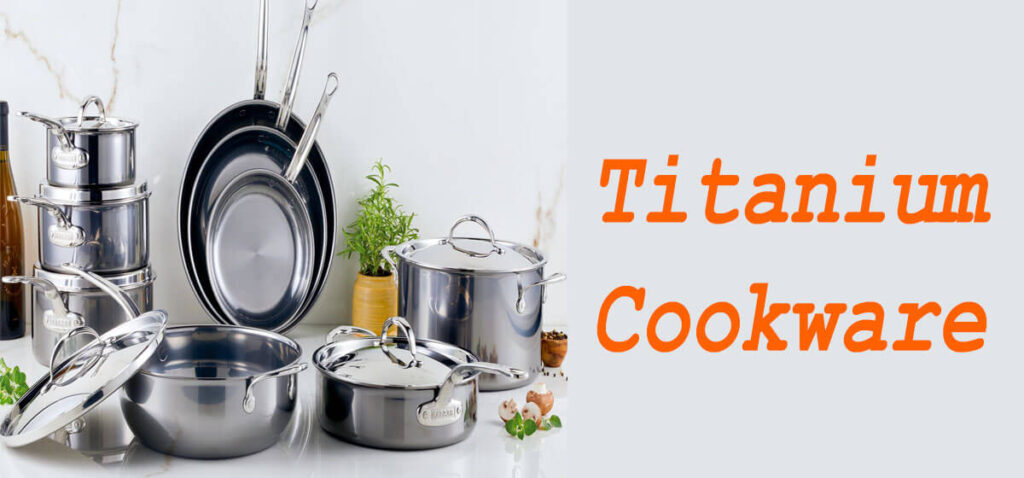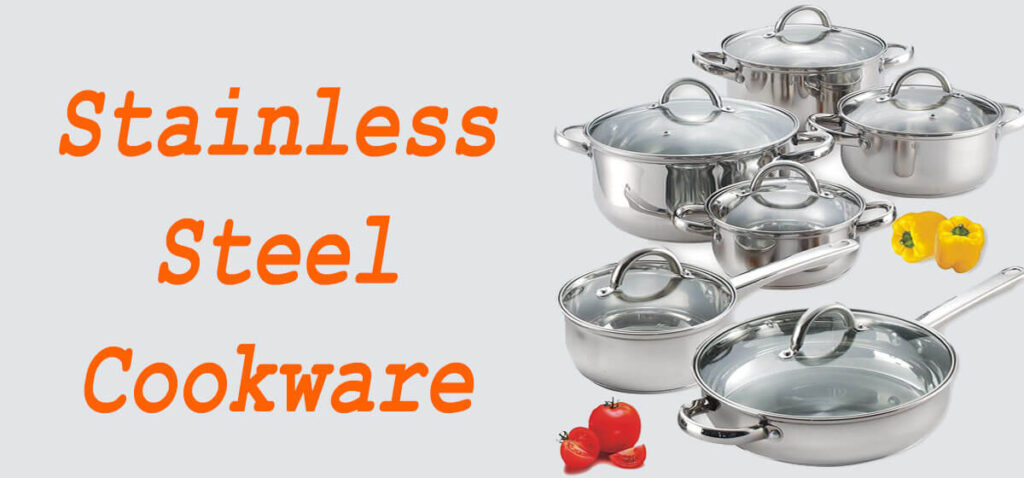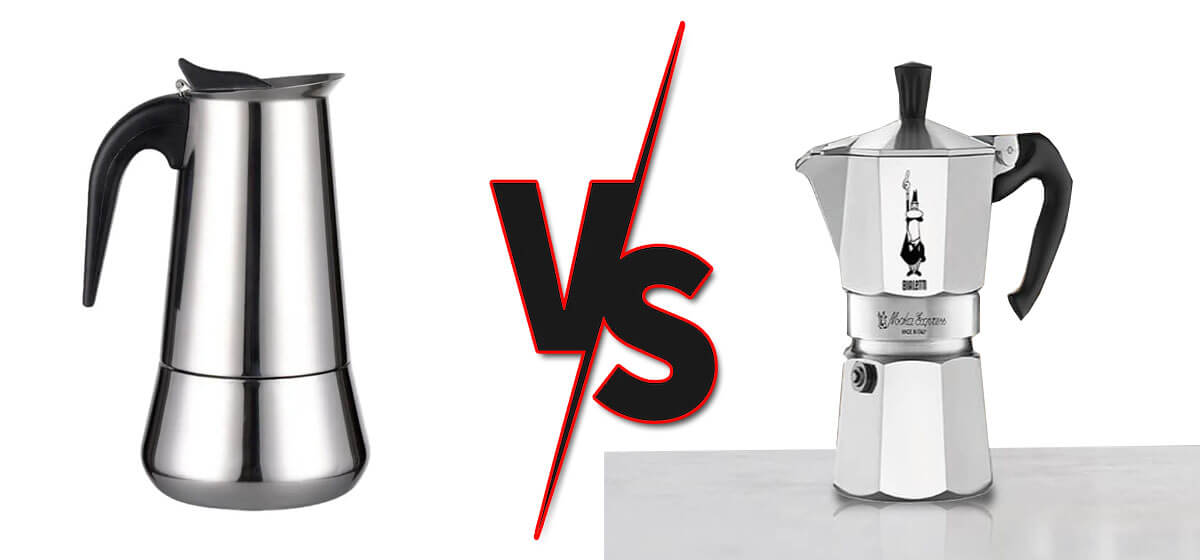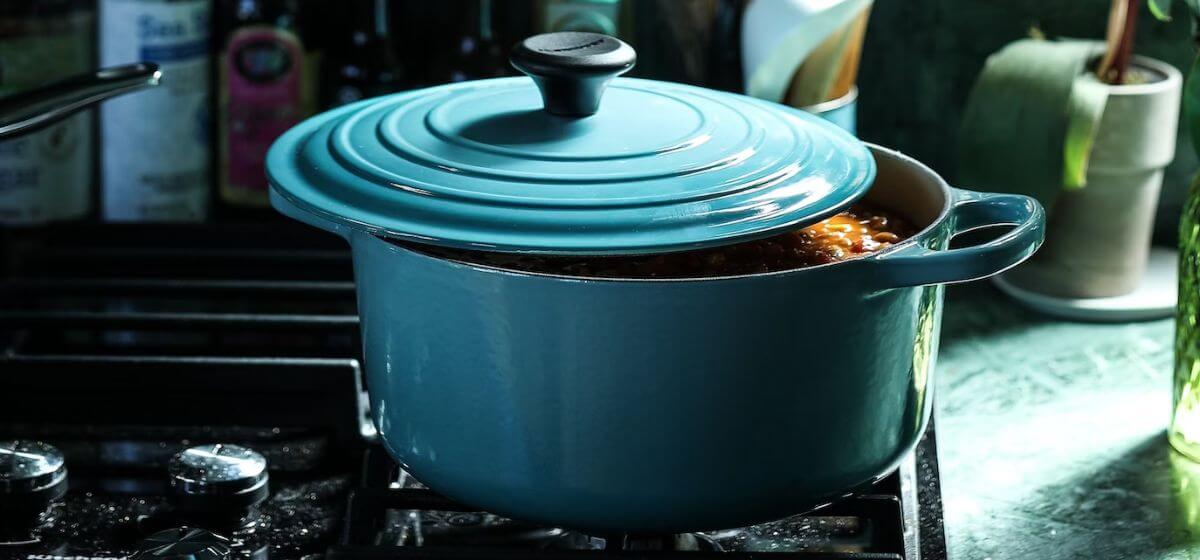Titanium Vs Stainless Steel Cookware: Ultimate Duel

As an Amazon Associate I earn from qualifying purchases.
When it comes to kitting out your kitchen with the best cookware, the materials you choose can have a significant impact on your cooking experience. Two popular options in the market are titanium vs stainless steel cookware. Both materials are widely used and have distinct advantages and disadvantages. In this guide, we’ll delve into a comparison between titanium and stainless steel cookware to help you make an informed decision.
Understanding the Materials
| Material | Durability | Weight | Thermal Conductivity | Reactivity | Maintenance |
|---|---|---|---|---|---|
| Titanium | Highly durable | Lightweight | Low | Non-reactive | Low maintenance |
| Stainless Steel | Very durable | Heavier | Moderate to high | Low reactivity | Some maintenance |

In understanding the basics of titanium and stainless steel as materials for cookware, it is evident that each has its pros and cons. Titanium cookware is renowned for being incredibly lightweight and durable. Stainless steel, on the other hand, is known for its excellent durability and better heat conductivity compared to titanium cookware.
When it comes to kitting out your kitchen with the best cookware, the materials you choose can have a significant impact on your cooking experience. Two popular options in the market are titanium vs stainless steel cookware. Both materials are widely used and have distinct advantages and disadvantages. In this guide, we’ll delve into a comparison between titanium and stainless steel cookware to help you make an informed decision.
Understanding the Materials
|
Material |
Durability | Weight | Thermal Conductivity | Reactivity | Maintenance |
|---|---|---|---|---|---|
|
Titanium |
Highly durable | Lightweight | Low | Non-reactive | Low maintenance |
|
Stainless Steel |
Very durable | Heavier | Moderate to high | Low reactivity | Some maintenance |
In understanding the basics of titanium and stainless steel as materials for cookware, it is evident that each has its pros and cons. Titanium cookware is renowned for being incredibly lightweight and durable. Stainless steel, on the other hand, is known for its excellent durability and better heat conductivity compared to titanium cookware.
Pros and Cons of Titanium Cookware
Pros:
- Lightweight: Titanium is significantly lighter than stainless steel, making cookware made of titanium easier to handle and carry, ideal for camping and hiking.
- Durability: It is highly durable and resistant to denting and warping, which means it can last for a long time.
- Non-Reactive: Titanium does not react with acidic or alkaline foods, ensuring that it does not alter the taste of your food.
- Corrosion Resistant: It is incredibly resistant to corrosion, even in high-salt environments.
- Low Maintenance: Cleaning titanium cookware is relatively easy, and it does not require any special maintenance.
Cons:
- Heat Conductivity: Titanium is not as good at conducting heat as stainless steel, which can lead to hot spots and uneven cooking.
- Price: It is often more expensive than stainless steel cookware, which can be a barrier for some consumers.
- Scratching: Though durable, the surface of titanium cookware can get scratched over time, especially if using metal utensils.
Pros and Cons of Stainless Steel Cookware
Pros:
- Durability: Stainless steel is highly durable and resistant to scratches, dents, and rust.
- Heat Conductivity: Better heat distribution and retention make for even cooking, and it can withstand very high temperatures.
- Versatility: Can be used on all types of cooktops, including induction, and is suitable for a wide variety of cooking methods.
- Non-Reactive: With proper care, stainless steel is minimally reactive, which means it’s safe for cooking all types of food.
- Appearance: With its classic, shiny finish, stainless steel cookware looks good in any kitchen setting.
Cons:
- Weight: Stainless steel cookware is heavier, which can be a slight inconvenience, particularly when handling larger pots or pans.
- Maintenance: It requires more maintenance to avoid water spots and keep the shine, including occasional polishing.
- Sticking: Without a non-stick coating, stainless steel can cause foods to stick, making it harder to clean.
Conclusion: Making Your Choice
Choosing between titanium and stainless steel cookware ultimately comes down to your particular needs and preferences. If you prioritize lightweight, low-maintenance cookware, titanium might be the better option for you. However, if you value even heat distribution and durability, stainless steel could be the way to go.
It is also worth considering investing in a combination of both types of cookware, utilizing the strengths of each material to cover all types of cooking scenarios. For instance, titanium cookware could be used for tasks where quick heat changes are needed, while stainless steel can be reserved for searing and browning where even heat is important.
Whatever you choose, make sure to invest in high-quality cookware that will stand the test of time and provide you with a great cooking experience for years to come.
Frequently Asked Questions On Titanium Vs Stainless Steel Cookware

What Is The Durability Of Titanium Cookware?
Titanium cookware boasts exceptional durability, resisting dents, scratches, and corrosion far better than stainless steel options.
Can Stainless Steel Leach Into Food?
Quality stainless steel cookware is generally safe, but poor-quality pieces can leach nickel and chromium into food during cooking.
Is Titanium Cookware Non-stick?
Titanium cookware often has a non-stick coating, making it ideal for cooking with minimal oil and easy food release.
How Does Stainless Steel Cookware Handle Heat?
Stainless steel cookware conducts and distributes heat evenly, making it excellent for browning, frying, and sautéing.
What Is The Weight Comparison For Cookware?
Titanium cookware is typically lighter compared to stainless steel, offering ease of handling and maneuverability while cooking.
How To Care For Titanium Vs Stainless Steel Cookware?
Titanium cookware requires less maintenance, often just a rinse and wipe, whereas stainless steel may need occasional polishing to prevent discoloration.
Amazon and the Amazon logo are trademarks of Amazon.com, Inc, or its affiliates.





This page is fabulous. The brilliant information reveals the essayist’s interest. I’m awestruck and envision further such astonishing substance.